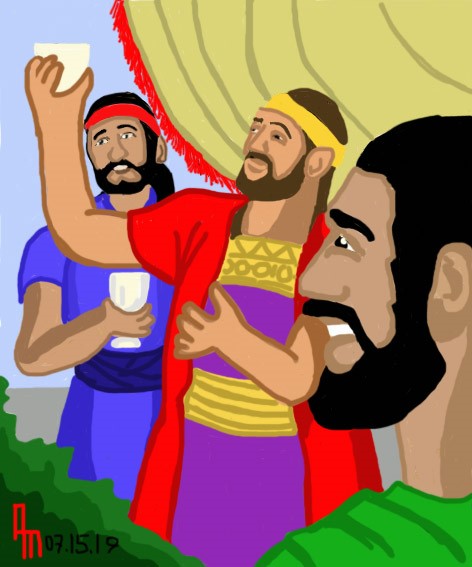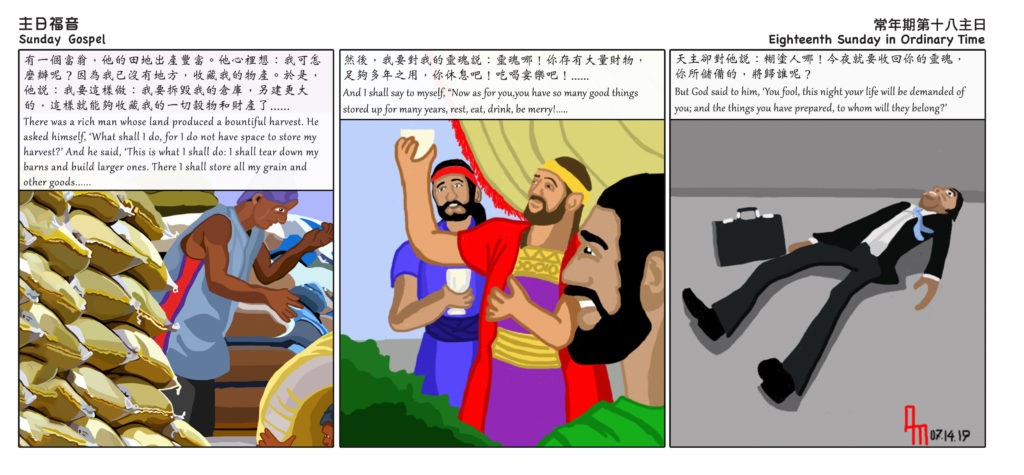LUKE 12:13-21
– Fr Fernando Armellini SCJ
Claretian Publications Macau
One day Jesus was chosen as mediator to solve a family feud.
Despite some bickering between brothers, in general, they love each other. Until when? Until the day they talk about the inheritance. Before money and property, even the best of people, Christians too, often end up losing their heads and become blind and deaf: they see only their interest and are willing to override even the most sacred sentiments.
Instead of solving the individual case, Jesus chooses to go to the root of the problem. “Be on your guard—he tells everyone—and avoid every kind of greed, for even though you have many possessions, it is not that which gives you life.”
Jesus singles out the cause of all evil: the greed of money, the desire to grab things. He tells a parable, the central part of which consists of the thoughts of a rich farmer.
Has this farmer—we wonder—no family, wife, children? No neighbors? No workers? Of course he has them. He lives among the people, but he does not see them. He has no time, no energies to use, no thoughts, no words, and no feelings for the people. In his mind there is no room for anything else, certainly not for God. The assets are the idol that has created a vacuum around him, and has dehumanized all.
The judgment of God is heavy: whoever lives to accumulate assets is a fool! Is wealth thus bad? Absolutely no. Jesus has never condemned it; he never asked anyone to throw it away, but he warned against the serious dangers that it hides.
The ideal of a Christian is not a miserable life. The farmer is condemned not because he has produced many goods, worked hard, was committed, but because “he has amassed for himself” and “has not enriched himself in the sight of God.”
Here are the two woes produced by being blinded with goods. The first: to enrich oneself alone, accumulating wealth for oneself without thinking of others. Incompatible with the Gospel is “greed,” the “insatiable craving for possession,” like the farmer of the parable. The second woe: having excluded God from one’s own life, replacing him with an idol. This choice leads to “madness” and the most obvious symptom is the removal of the thought of death. He imagines that he is eternal.
Everyone should be aware that the treasures of this world are treacherous, they do not accompany us to the other life.



 Follow
Follow


